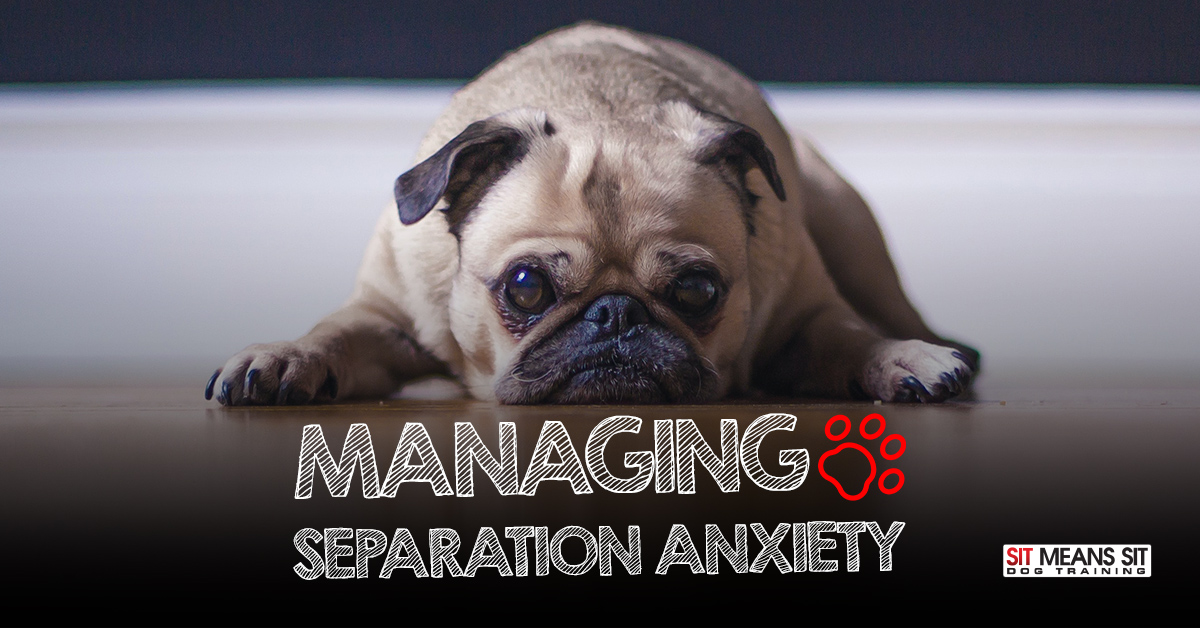
Ideas for Managing Canine Separation Anxiety
As pet parents, we hate to see our furry companions sad or in any sort of pain. Separation anxiety is is a condition that can negatively impact our dog’s quality of life. It’s fear and anxiety that occur when a dog is separated from his caretaker.
While there is no cure for separation anxiety, there are things that you can do to manage it and make your pup feel a little better.
Signs of Separation Anxiety in Dogs
The signs usually occur when your dog is alone or as he realizes you are leaving. These signs include:
- Increased vocalization, including howling, whining, and barking
- Trying to leave the home with the owner
- Destruction of items in the house, including carpet, furniture, and door frames
- Defecating or urinating in the home while alone
- Drooling
- Panting
- Pacing
Tips for Managing Separation Anxiety
You may have to try out a few different tips or ideas before you see some improvement, and remember, it takes time. Be patient and adjust as you find what works for your dog.
- Decrease the drama around leaving and coming home. Keep things as calm as possible while you’re getting ready to go and arriving back.
- Vary your routine and leave for short times. Once your dog can stay calm during your getting ready routine, start leaving the house just for a moment and then coming back.
- Give your dog something to keep him busy while you’re gone. A puzzle toy is an excellent idea for helping to keep your dog distracted and busy.
- Work on building your dog’s confidence. The idea here is to encourage your dog to be successful with activities at a distance from you. Play games that require him to leave your side, like fetch.
- Keep your dog well-exercised. If you’re able to spend some time in tiring interactive play before you leave the house, your dog should be able to remain calmer while you’re gone.
It’s essential to keep your dog safe. If his separation anxiety causes him to chew and eat dangerous items or do other unsafe things, you may need to confine him to a safe spot like a crate while you’re gone. If none of these tips work for your pooch, some dogs benefit from anti-anxiety medications. Talk with your veterinarian to determine whether that’s right for your dog.
Does your dog have bad separation anxiety? We would love to hear some of your solutions!
